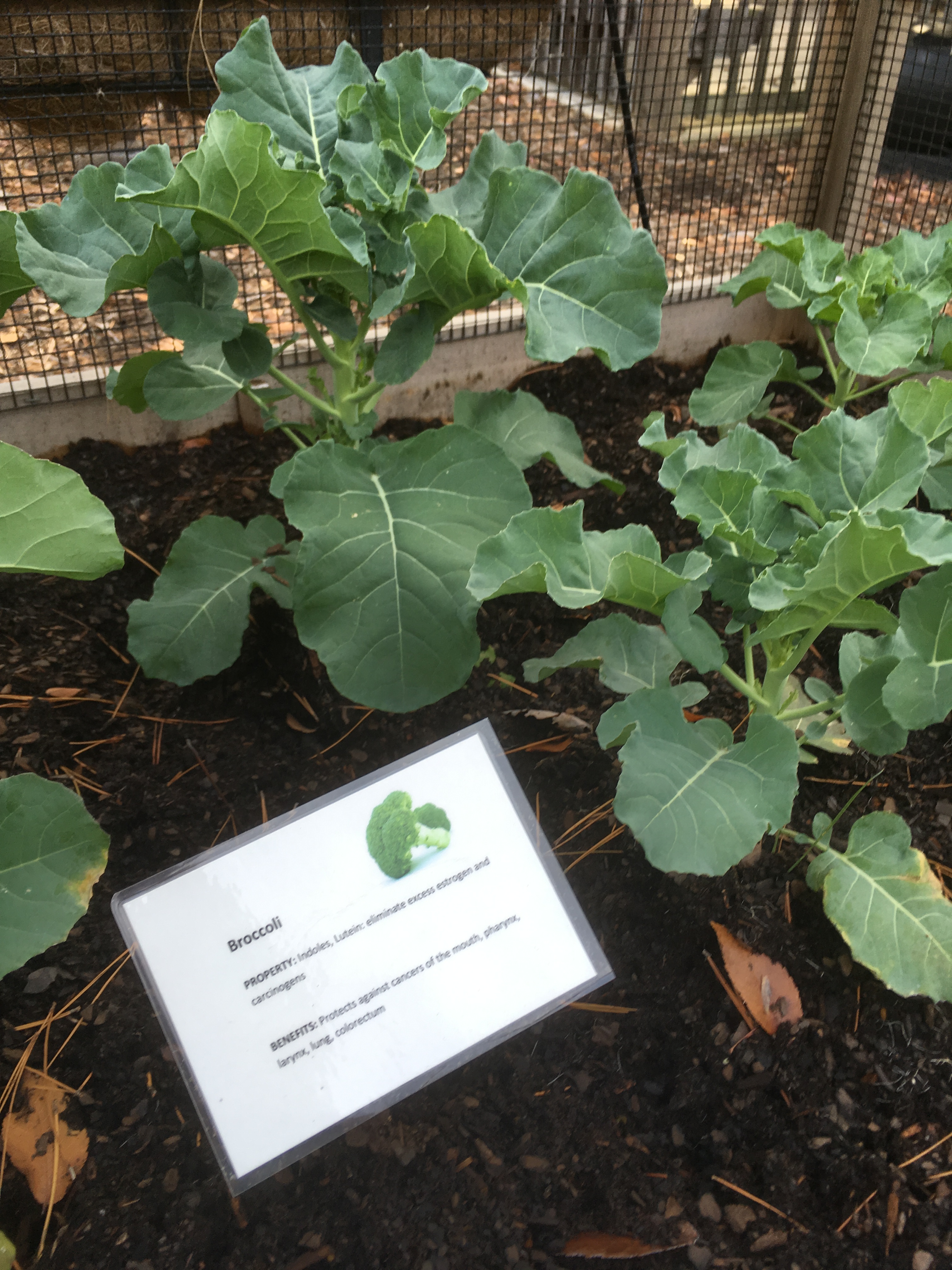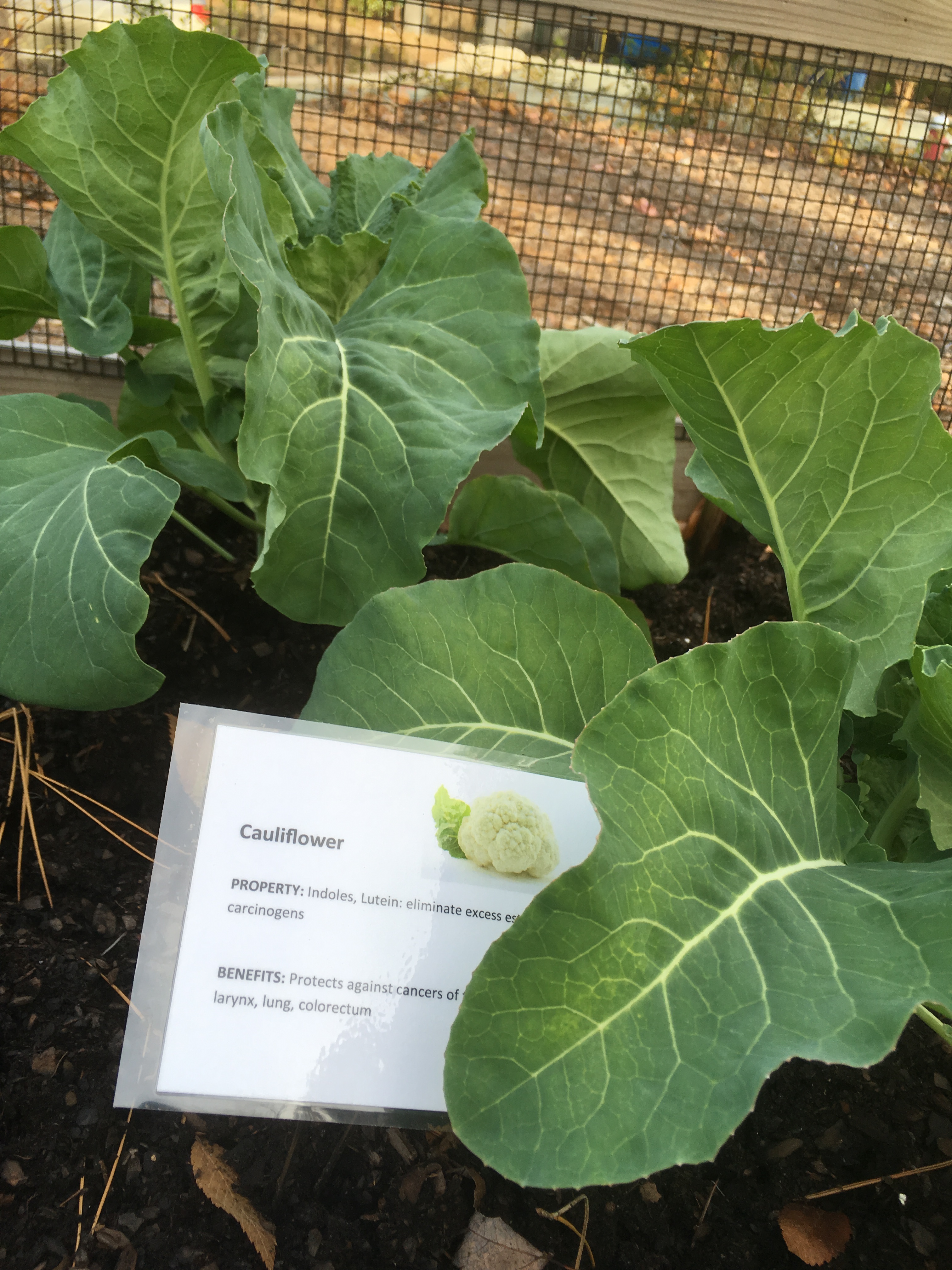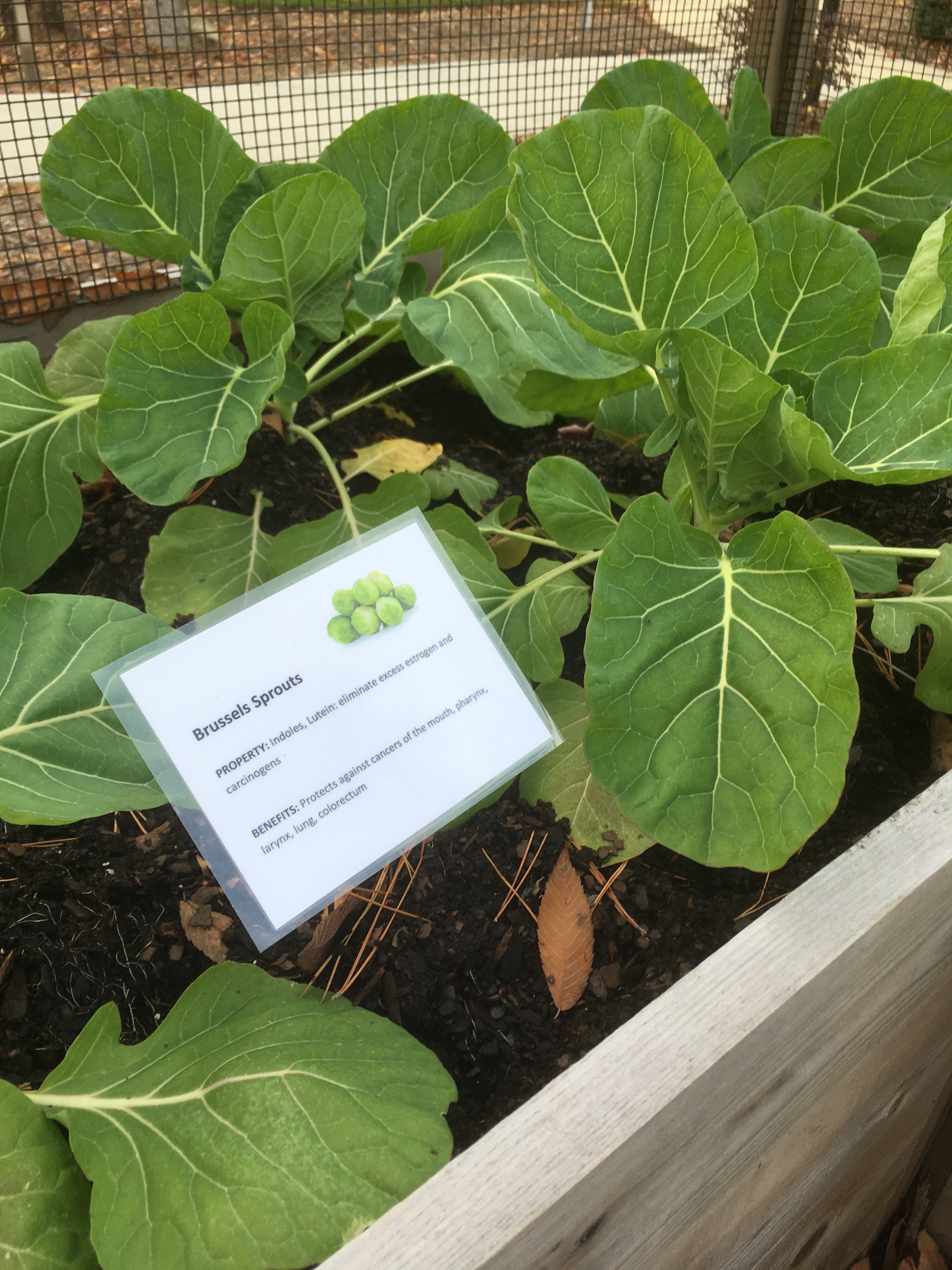Despite the cold weather, you can still get vegetables in season. Cruciferous vegetables are both cold hardy and cancer fighting.
Cruciferous vegetables, named for their four-petal flowers resembling a cross or “crucifer,” are known for their many health benefits, including their cancer-fighting properties. Broccoli is the most well-known cruciferous vegetable, although there are many others. Brussels sprouts, cabbage, cauliflower, turnips, and dark leafy greens like kale and collard greens are also in the cruciferous family. Nearly all are excellent sources of vitamins C and K, folate (a B vitamin), potassium, fiber, and magnesium.
 The cancer-fighting properties are attributed to compounds called glucosinolates, which are found in all cruciferous vegetables. Upon ingestion, glucosinolates break down to isothiocyanates and indoles, which are associated with decreased inflammation, lowering the risk of cancer. Traditional population-based studies have found strong links between greater consumption of cruciferous vegetables and lowered risk of lung, colorectal, stomach, breast, prostate, and other cancers. More recent research suggests that the compounds found in cruciferous vegetables “turn on” genes that suppress tumors, slowing tumor growth, and stimulate self-destruction of cancer cells (apoptosis). In addition, glucosinolates may stimulate enzymes that deactivate carcinogens and decrease cancer cells’ ability to spread. For hormone-linked cancers, some research has shown that glucosinolates may shift active estrogen to a weaker form and may have added benefits with some chemo drugs. Animal studies reinforce these findings, showing that diets high in cruciferous vegetables slow cancer growth in animals.
The cancer-fighting properties are attributed to compounds called glucosinolates, which are found in all cruciferous vegetables. Upon ingestion, glucosinolates break down to isothiocyanates and indoles, which are associated with decreased inflammation, lowering the risk of cancer. Traditional population-based studies have found strong links between greater consumption of cruciferous vegetables and lowered risk of lung, colorectal, stomach, breast, prostate, and other cancers. More recent research suggests that the compounds found in cruciferous vegetables “turn on” genes that suppress tumors, slowing tumor growth, and stimulate self-destruction of cancer cells (apoptosis). In addition, glucosinolates may stimulate enzymes that deactivate carcinogens and decrease cancer cells’ ability to spread. For hormone-linked cancers, some research has shown that glucosinolates may shift active estrogen to a weaker form and may have added benefits with some chemo drugs. Animal studies reinforce these findings, showing that diets high in cruciferous vegetables slow cancer growth in animals.
 However, human studies are inconsistent in showing a link between cruciferous vegetable consumption and a reduction in cancer risk. This may indicate that some people may get greater cancer protection from these vegetables than other due to genetic differences in how the body processes the glucosinolate compounds. In addition, differences in cooking and preparation methods may influence the nutrient composition. To reap the most cancer-fighting benefits from your diet, try incorporating a variety of cruciferous vegetables in your diet and experiment with new preparation techniques.
However, human studies are inconsistent in showing a link between cruciferous vegetable consumption and a reduction in cancer risk. This may indicate that some people may get greater cancer protection from these vegetables than other due to genetic differences in how the body processes the glucosinolate compounds. In addition, differences in cooking and preparation methods may influence the nutrient composition. To reap the most cancer-fighting benefits from your diet, try incorporating a variety of cruciferous vegetables in your diet and experiment with new preparation techniques.
 Tips for selection and preparation:
Tips for selection and preparation:
- Ensure green leaves are fresh, with no wilting or yellowing
- Wash with cool running water just before use
- Steam, microwave, stir-fry, or sauté to retain glucosinolates, folate, a vitamin C. Boiling greens in a pot of water can cut the content of these compounds in half!
- Cook just until tender/crisp, with greens still bright to avoid bad odors
- Try roasting with olive oil, garlic, and your favorite herbs
- Enjoy raw with hummus. If the flavor is too strong to enjoy raw, steam or blanch briefly, cool in ice water, and serve cold.
- Add fresh to green salads
References:
www.aicr.org/cancer-prevention/food-facts/broccoli-cruciferous-vegetables/
Written by Jillian Klemm, Dietetic Intern